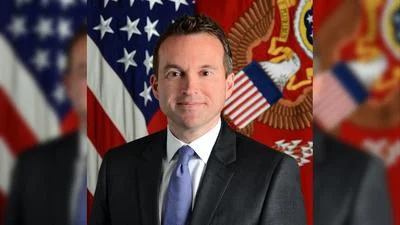For several months, Coin Center has advocated for key provisions in the market structure legislation currently under discussion in the U.S. Senate. The House previously passed a bipartisan bill called Clarity, which was shaped with input from groups like Coin Center and technical assistance from the Treasury Department to address potential illicit finance loopholes. These provisions received strong support in the House and were endorsed by the administration in a report from the President’s Working Group.
Two main elements of Clarity are central to these discussions: first, the inclusion of the BRCA, which would formalize FinCEN's 2019 guidance on money transmission and prevent inappropriate prosecution of software developers for unlicensed money transmission; second, so-called “developer protections” that clarify and limit who qualifies as a digital commodity broker or dealer under Commodity Futures Trading Commission (CFTC) authority. These protections are intended to ensure that software developers do not face liability simply for developing code or infrastructure.
Coin Center has highlighted that these “developer protections,” also referred to as “Exclusion for decentralized finance activities” in House language, are not special exemptions for any particular industry nor do they create broad loopholes. Instead, they aim to appropriately define regulatory boundaries.
The legislative approach taken by the House was to broadly define Digital Commodity Broker and Dealer but then exclude certain neutral parties—such as software developers and infrastructure providers—from registration requirements. According to Coin Center, this prevents regulatory arbitrage while protecting individuals who should not be subject to registration.
Section 409 of the Clarity Act lays out specific exclusions for decentralized finance activities. These include compiling network transactions, providing computational work or bandwidth, offering user interfaces for blockchain data access, publishing or distributing blockchain systems or messaging protocols, operating liquidity pools for spot transactions, and developing wallet software enabling users’ self-custody of digital assets. However, these exclusions do not affect anti-fraud or anti-manipulation enforcement by regulators.
“These are fundamental and reasonable limitations on who should have an obligation to go get permission before they engage in certain activities relating to digital commodities,” according to Coin Center.
The organization emphasized that such exclusions ensure that roles like bitcoin miners or internet communication intermediaries are not treated as financial institutions requiring CFTC approval. They also argue that operators of informational websites and publishers of wallet software should not be regulated as if they hold customers’ assets or act as financial intermediaries.
“These carefully drafted and ultimately non-partisan exclusions from the definition of a broker are part and parcel of the excellent work done in the House,” Coin Center stated. The group warned that removing these protections could result in overly broad definitions sweeping up ordinary developers and infrastructure providers into burdensome registration regimes—potentially infringing on First Amendment rights related to software publication.
“On these issues, the Senate should follow the approach in Clarity; if the developer protections are dropped we’d need to go back to the drawing board with the broad definitions of brokers and dealers and that’s a renegotiation from which no one will likely benefit,” said Coin Center.
Coin Center noted this does not preclude future legislative action on concerns such as illicit finance or consumer protection within decentralized finance (DeFi). Rather, it means lawmakers should avoid treating all developers and infrastructure providers as brokers or dealers under current proposals.






